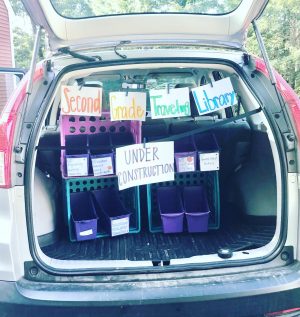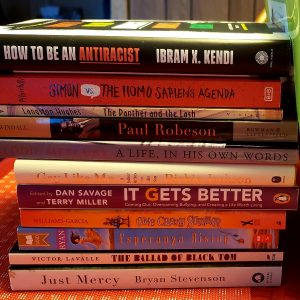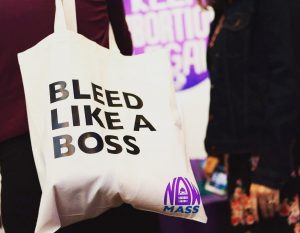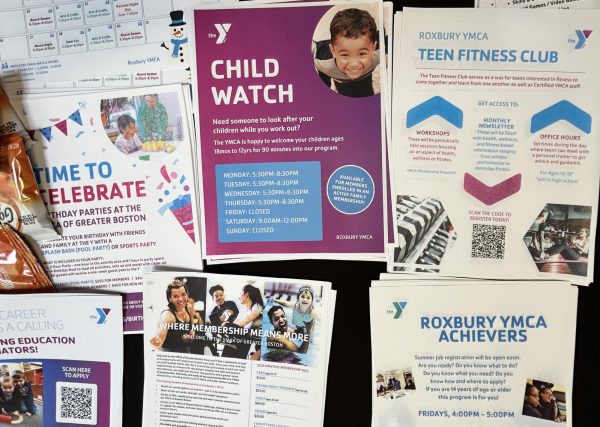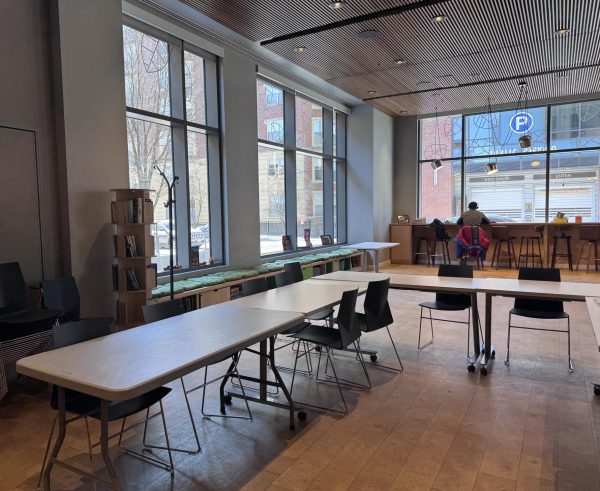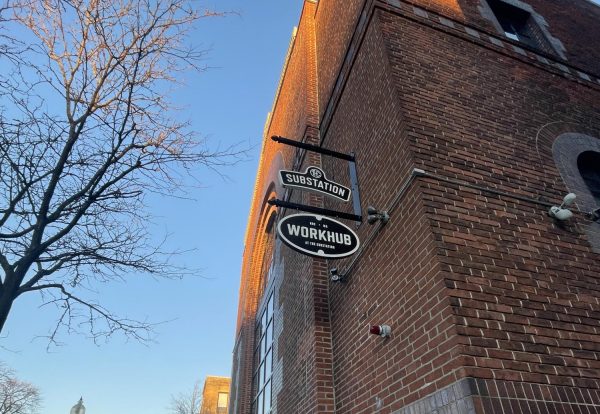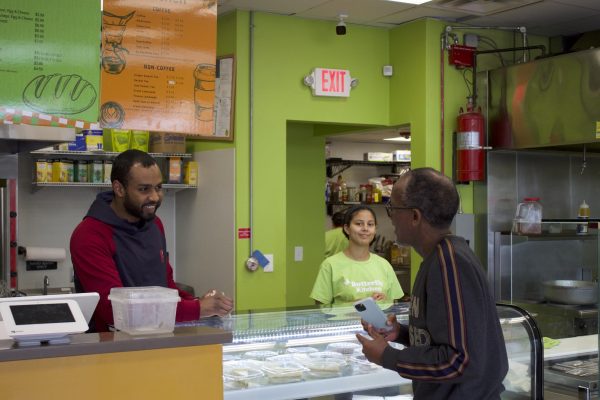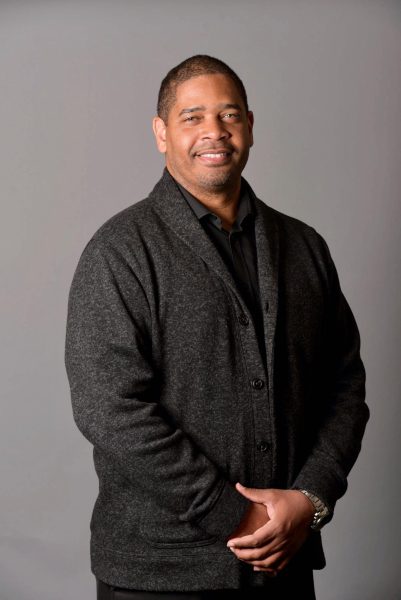Senise-Moreno supports high needs students at Margarita Muñiz Academy during the pandemic
Ruth Senise-Moreno has a reputation at the Margarita Muñiz Academy, the only dual-language high school in Boston, as the person to speak to when things go wrong.
“Ruth is a person with a huge heart and an enormous understanding of the privations that our students face,” said Cecilia Soriano, the school’s director of development. “She has a wealth of knowledge in terms of the resources available in the city — with her marvelous sense of humor and gutsy resolve to face whatever the problem is, she inspires hope in our families. Ruth is a treasure.”
The majority of students at Muñiz Academy are low-income, food insecure or houseless, and the school employs two family and community field coordinators who work to connect students with needed resources. Senise-Moreno was the first family and community field coordinator for the Muñiz Academy, a position she’s held for the last seven years. Much of her early time there was spent building the infrastructure to meet students’ needs, and the school now benefits from relationships with other organizations serving the community including Katie’s Closet, Tree of Life and the Boston Police Department.
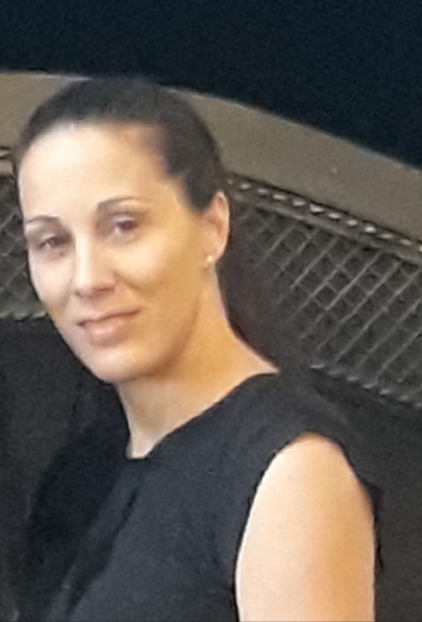
As COVID-19 numbers continue to rise in Boston, the Boston Public School system has returned to fully remote learning. Seeing how this can affect students struggling with mental health, Internet accessibility, and other critical needs, the Margarita Muñiz Academy’s family and community field coordinator team has adjusted their approach to surround students with the same sense of community that helps them flourish.
Senise-Moreno spoke with The Scope about caring for students in the midst of a pandemic, Boston’s support systems for low-income youth and their families and her role in the Margarita Muñiz Academy community.
Q: What does an average day look like for you?
A: Right now, due to the fact that we’re online, we’ve been looking at attendance for our students. Kids are not used to virtual learning. I see their absences in one class, or two classes, and I have to call the parents and contact them to see how they’re doing. And usually when I make that call relating to attendance, then things come up. Whether it’s housing issues, food issues, clothing issues, internet issues — so many things can come up in a conversation.
Q: Do students come to you directly or is it in these family conferences?
A: Usually it’s a little bit of both. We have a very small community, and that community is very close. So our teachers, since they know the work that I do, tend to let students know from the get go if there is any type of need. We also do family meetings, in which we give info to the parents and let them know how we’re able to better support them if they have a situation.
A lot of the time we don’t tend to find out until later on during the year, unless I know because the school district tells me, or another school where they came from gives me the information. The reason why is because they get embarrassed of their situation, so they don’t want to share with anyone if there’s a need for food or shelter. When it gets really rough is when they start speaking to us about the situation.
A lot of times I feel it’s so easy for me to communicate with the families that they feel comfortable sharing information. That’s why we try to grab them earlier by having these family meetings. So I really try to make them comfortable, knowing this is a judgment-free zone. We all go through something at some point in time, so we have to get the help that we need.
Q: How have students’ needs changed during the pandemic?
A: We’re seeing a lot of depression and anxiety. It’s a lot of mental health. Before, I’d organize for counselors to come in and provide counseling services to our students. But as of yet, we don’t have a counselor. We don’t have that to help them at this point in time. So we can get with the family, let them know that they have to see someone. So the need right now academically is of course we want to get them on track but because of this craziness it’s hard for them to even focus on classes.
We have something in our school called Crew, and twice a week they meet with a teacher who is their Crew advisor. It’s a small circle, about ten kids, where they can talk to each other, but there’s very little interaction you’re able to do through computers. So right now we’re trying to figure it out day by day. Our conversation last week with the whole team was “How do we bring joy to the kids? What can we do?” That joy is taken away, so how can we change it around?
Something we’re definitely seeing is that a lot of these families don’t have internet. Because of COVID-19 they get two months free, and then after that it’s $10 a month. But we’re noticing that that’s a problem. If the family has had an outstanding bill, they can’t get those services. So they don’t have any internet. If we get them the services, that internet is not strong enough. So our kids are missing classes. Families are calling me, “Ruth, we don’t have internet, Ruth, the internet disappeared, we don’t know what to do.” We have to get hotspots from BPS and sometimes that is also a problem. At least 80% of our students have Chromebooks provided by BPS.
Q: What other issues are you seeing?
A: One thing is we’re seeing a lot of students that pretty much don’t have any families. These kids are on the streets or living with friends’ families. So we’re seeing youth that are homeless. And that’s very hard, because a lot of people don’t know this, but when you’re in a shelter, if it’s a family shelter, it’s very different. When it’s an individual shelter for youths it is horrific. I’ve been inside these shelters and I wish that the city would see what’s going on and try to figure it out because there’s very little shelter for youth. There’s only two of them and in order to get there they have to be on a waiting list. I’ve had to work with youth that have been on the streets, speak to friends of theirs and their families, to be able to keep them for a little while so I can find a place for them. That’s very heartbreaking. [They have] no families or families have evicted them, whether they’re pregnant, whether they’re gay — whatever the situation we’re just seeing a lot of rejection from families toward students. Finding a place for them has been hard.
It’s very easy to say to someone “Go to the welfare office, do this,” but I’ve got a kid on his own. How can he even think about that? Unfortunately we have so many situations with the Department of Children’s Services and it’s difficult when there are so many cases out there, but I think very few people care for them. I don’t see the empathy and sympathy towards people when it comes to these offices. This is just another case, to them. And it’s not, because I work very closely with the families and students and when I see there’s something going on, I really want to find a solution. I’m not the type of person to depend on DCS. We as a community, we try to figure it out.
They don’t do anything or when they do, weeks have passed. I see a lot of organizations like DCS that really don’t work very well, and in our community, we really work. When we have a situation going on with a family, we embrace it. We circle it and we figure out, what can we do? How can we move this, who do we have to contact? We can’t throw the students out there to figure it out. Everyone has a time frame but when it comes to situations of homelessness, needing food and clothes, mental health, those are things that have to be the snap of a finger and it’s not happening.
Q: What are you most proud of in your work with the Muñiz Academy?
A: There are many moments. Right now, I was very grateful that the mayor was able to work something out with Boston housing — 1,000 vouchers were given out to families, 500 of those were for families that were unsheltered, and the other 500 were for families that were in doubled-up situations. Doubled-up means maybe four families in a two-bedroom house, and that’s still considered to be homeless. So because he was able to do that, we have a way to see how many students in our school are doubled-up or unsheltered. We have many families in that situation. And as of now, all of them are in the process of receiving a voucher.
It was a lot of work because I needed to send out 35 referrals for doubled-up families, and those were just the ones that I knew of. It was a blessing to be able to do that and see how some of these families are receiving section 8 vouchers because they were in very uncomfortable situations. So just hearing their stories and seeing that they send me pictures of their homes, they thank me for doing that referral and working with them through the application process. That right now is my moment.
Q: What was establishing this partner network like?
A: I was the one who established all of it. When I came in, [the academy] was in existence for a year, they’re now in their eighth year. Because of when I started, they only had two grades. They would add one grade every year. So when I went in, I was working with 9th and 10th grade. At that time, there were mental health issues, so I started partnering up with people from the community and seeing if they would be able to bring counselors. And that was working very well, we were able to get counselors from different agencies to come in, and they started assisting our kids’ mental health. That started immediately.
I started then seeing kids that were homeless. That’s still a problem because there’s really no shelter for youth and the process is ridiculous. It was very hard, those beginning years, the first four years. I think now I can tell you that I can try to relax more because we have a lot of stuff already in place, but when you’re starting in someplace new, you’re doing all the work. This is the first year — and I’m so grateful for it — that I have someone that is helping me out. For the past 7 years it’s been me. I feel proud of the work that I’ve done. And now that you ask that question I go “Oh my god, I did all that. How did I do all that?”
We also had two different gangs in our school, early on. Until they graduated I was holding their hands, meeting after meeting to keep the peace. We were all on edge for a while, we just didn’t know what would happen. Because of the love that our teachers have for the kids, we had teachers calling them in all the time to ask how they’re doing. It was a lot of hands on work that we were doing. So a lot of people would say “Oh, Ruth is the family coordinator, so she just coordinates residences and things like that.” No. I give people my title but it includes so much more.
A teacher becomes a mom, a teacher becomes a dad, a teacher becomes a counselor. That’s the type of community we work with. The teacher’s job is not the teacher’s job. At the Muñiz Academy, everyone has different titles and job descriptions. That’s why it works, because you can go to a teacher and they will not hesitate to say “What do you need? How can I help you through this?” It’s very empathetic, the community, and this is why the work that I do works.


